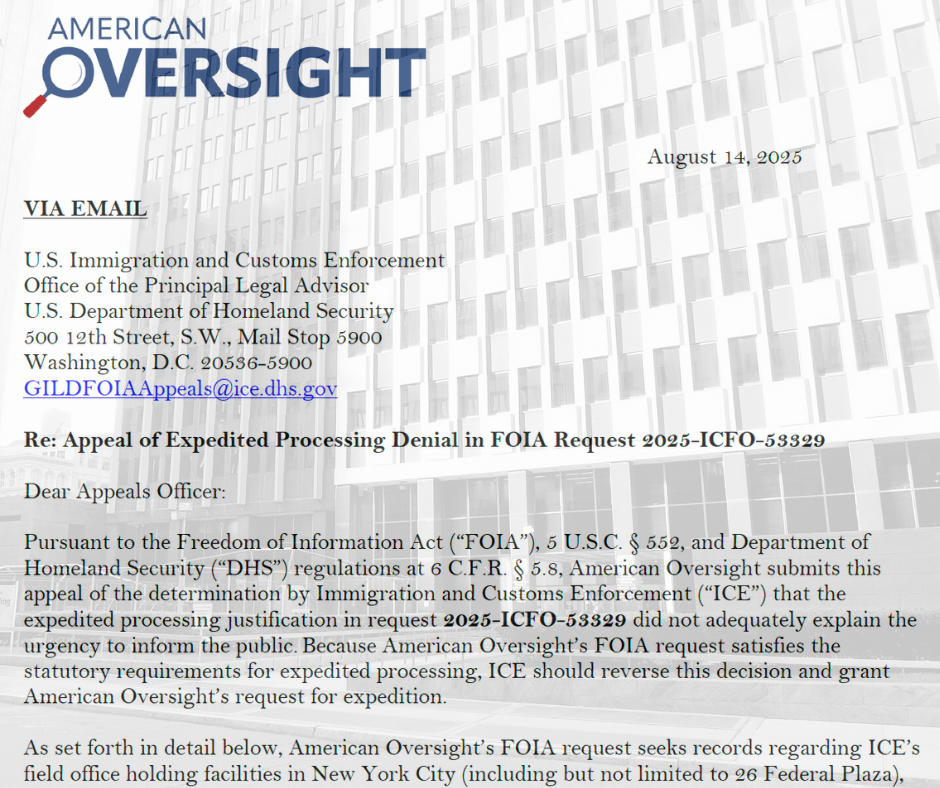American Oversight Files Administrative Appeal for Records on ICE’s New York City Detention Facilities
We’re challenging DHS’s refusal to process our public records request seeking information about ICE detainees and detention center conditions relevant to ongoing federal lawsuits and public interest.

Today, American Oversight filed an administrative appeal challenging the Department of Homeland Security’s refusal to expedite the release of records sought under the Freedom of Information Act (FOIA) concerning Immigration and Customs Enforcement’s (ICE) detention facilities in New York City, including the field office at 26 Federal Plaza.
The appeal follows a federal judge’s order on Tuesday blocking the Trump administration from using 26 Federal Plaza to hold immigrants facing deportation, after a lawyer for the administration conceded in a separate lawsuit that those detained by ICE at the facility lacked basic services — including sleeping mats, in-person legal visits, medication, and more than two meals per day.
American Oversight’s FOIA requests seek records detailing the number of people detained at these facilities, policies and practices governing detention conditions, and inspection reports. The requested records are of urgent public concern: there has been significant national media and congressional interest about this issue, and the records could help answer questions that have arisen in multiple ongoing federal lawsuits, including a suit brought by twelve members of Congress blocked from conducting lawful oversight of federal immigration detention facilities.
“ICE detention facilities are notorious for secrecy, but when people’s rights, safety, and freedom are at stake, the public deserves timely transparency,” said Chioma Chukwu, Executive Director of American Oversight. “Despite the Trump administration’s own admission that conditions in these facilities are deplorable, ICE has flat-out refused to acknowledge the public’s pressing need to know — a choice that speaks volumes about their willful disregard for transparency. This isn’t an inability to recognize the human cost of their policies; it’s a deliberate rejection of it, paired with a calculated effort to obscure the truth. By slow-walking the release of these records, the government is not only keeping the public in the dark — it’s depriving courts and Congress of information that could shape urgent decisions.”
In Barco Mercado v. Noem, a federal district court in New York City directly asked government counsel about the existence of records that American Oversight’s FOIA request seeks — records that the government admitted exist, and that it has custody of. Those records, as well as others responsive to American Oversight’s request, could be highly relevant to pending motions for preliminary relief in both Barco Mercado and Neguse v. ICE.
Under the government’s standard FOIA timelines, the public may not see these records until long after the courts rule in these high-profile cases. American Oversight’s appeal argues that expedited processing is necessary both because there is an urgency to inform the public, and because the government’s own actions have affected the public’s confidence about its treatment of detainees at ICE detention facilities. Should expedited processing be granted, it will allow the public, Congress, and the courts to evaluate ICE’s actions — and not be forced to rely on the agency’s public statements.